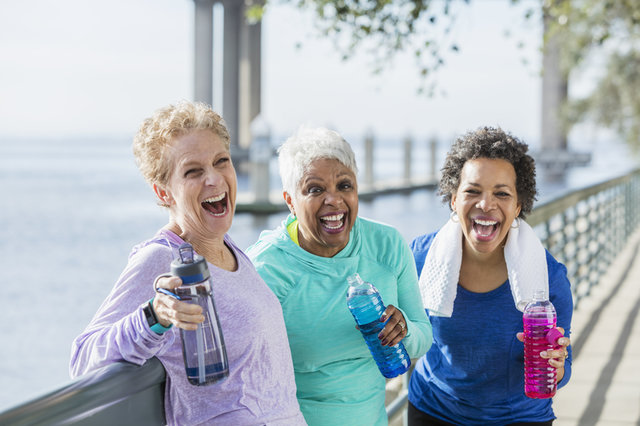
Consumer perspective

Will Cowling
Marketing Manager
FMCG Gurus
United Kingdom
Bio...
As Marketing Manager of FMCG Gurus, Will Cowling is responsible for managing the day to day marketing tasks ranging from implementing campaigns, PR, to managing content on socials and the website. Understanding the business and the industry is key to providing innovative ideas and producing quality content.
Across the globe, females are embracing the concept of healthy ageing and trying to stay fit and active until later in life. Despite living in a pandemic environment for the last couple of years, they remain relatively confident about their health. Nevertheless, a considerable proportion of females feel that their health has deteriorated over the last couple of years, something more likely to be attributed to modern lifestyles rather than coronavirus. Moreover, a high level of consciousness about physical and emotional wellbeing means that females are taking a proactive approach to health maintenance, something that they will look to address through their diets – which in turn is driving demand for every day, natural products positioned around active ingredients.

Overall, females across the globe appear broadly satisfied with their levels of wellness, with 66% saying in 2021 that they deem themselves to be in good health. However, that is not to say that women are not conscious about their health. For instance, a total of 21% say that their health has declined over the last two years. When questioned why they have this sentiment, the most popular answers given were the recognition that diets were not as healthy as they should be (52%), followed by ageing (39%). This shows that any negative sentiment towards wellbeing is not short-term and purely the result of a pandemic environment faced by society over the last couple of years but instead, the recognition that modern diets and lifestyles increase the risk of long-term health problems. Given that 73% of females say that they take a long-term approach to health, this is something that will result in women looking to be more proactive from a wellness perspective, to facilitate healthy ageing and minimize vulnerability to illness.
As such, it is not surprising that women would like to improve a variety of health areas over the next twelve months. When asked about specific areas of wellbeing, 63% said that they would like to improve their immune health, something that will have been directly influenced by the pandemic and people re-evaluating their health in a way that previous generations have not done. In addition, 48% said that they want to improve their stress levels, whilst 47% said this in relation to mental health. The fact that one in two women are focused on their emotional health reflects the impact that high levels of uncertainty have had over the last couple of years and myriad of daily worries. It also shows that females recognize that mental health is something that is just as important as physical health from a healthy ageing perspective, and how feeling tired, stressed, and anxious can increase the risk of more serious health problems.
When looking to improve their health, a total of 70% of females say that they have looked to improve their diets over the last twelve months. This shows that many females are conscious about how issues such as poorly structured meal-time habits, a tendency to overindulgence, a lack of attention to nutritional intake and a dependency on convenience food/tendency to eat out-of-home is having an impact on wellbeing. While improving diets has traditionally been associated with dieting and to lose weight, females are now adopting a broader approach to healthy eating and drinking, focusing on the long-term benefits, and associating healthy living with being a life goal.
The evolution of dietary habits is reflected that such eating and drinking regimes are no longer associated with moderation and avoidance but instead, positive nutrition and a back-to-basic approach to nutrition. Indeed, when asked what steps they have taken to improve their diets over the period, the top three answers were “increased intake of fruit/vegetables” (72%), “reduced sugar intake” (70%) and “increased intake of vitamins” (58%). This shows that while females can still be concerned about perceived dietary evils, they are just as focusing on maximizing their intake of active ingredients that offer a health boost when eating and drinking.
Given the popularity of fruit and vegetables, as women seek out products that deem natural and nutritious and tasty and affordable, it is crucial that brands look to maximize awareness about functional ingredients that can be found in everyday food and drink products that help aid physical and mental wellbeing.
This article is based on FMCG Gurus: Women’s Health Survey Series.
For more information please contact us.



